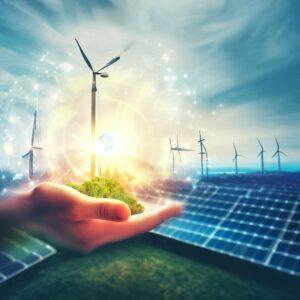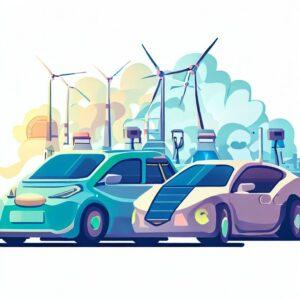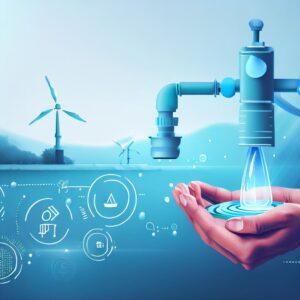Renewable
Renewable Energy Sources
Technology has enabled the development and widespread use of renewable energy sources such as solar, wind, and hydroelectric power.
These sources generate electricity with minimal greenhouse gas emissions, reducing reliance on fossil fuels and decreasing air pollution.
Efficiency
Energy Efficiency

Technological advancements have led to the creation of more energy-efficient appliances, vehicles, and industrial processes.
Energy-efficient technologies help reduce overall energy consumption and lower greenhouse gas emissions.
Waste
Waste Reduction

Technology plays a crucial role in waste reduction and recycling efforts. Advanced sorting and recycling technologies make it possible to recover valuable materials from waste streams, reducing the need for raw material extraction and minimizing landfill waste.
Monitoring
Environmental Monitoring

High-tech environmental monitoring tools, including satellites, sensors, and remote sensing equipment, provide valuable data for understanding and managing environmental changes.
These technologies enable early detection of natural disasters and support informed decision-making for disaster response and mitigation.
Farming
Precision Agriculture

Technology has revolutionized agriculture through precision farming techniques. Farmers can use sensors, GPS, and data analytics to optimize crop management, reduce water usage, and minimize the need for pesticides and fertilizers, leading to more sustainable and eco-friendly farming practices.
EV
Clean Transportation

Electric vehicles (EVs) and hybrid vehicles have gained popularity, reducing air pollution and greenhouse gas emissions in the transportation sector. Additionally, advances in public transportation systems and ride-sharing apps promote more eco-friendly transportation options.
Building
Eco-Friendly Building Materials

Advancements in construction technology have led to the development of eco-friendly building materials and construction practices that reduce energy consumption in buildings and promote energy-efficient designs.
Telework
Remote Work and Telecommuting
The adoption of remote work and telecommuting technologies can reduce the need for commuting, lowering traffic congestion and air pollution.
Water
Water Conservation

Technology aids in water conservation efforts through the development of smart irrigation systems, leak detection sensors, and water recycling technologies.
Conservation
Conservation and Restoration

GIS (Geographic Information System) technology and satellite imagery assist conservationists and environmentalists in mapping and monitoring ecosystems and facilitating conservation and restoration efforts.